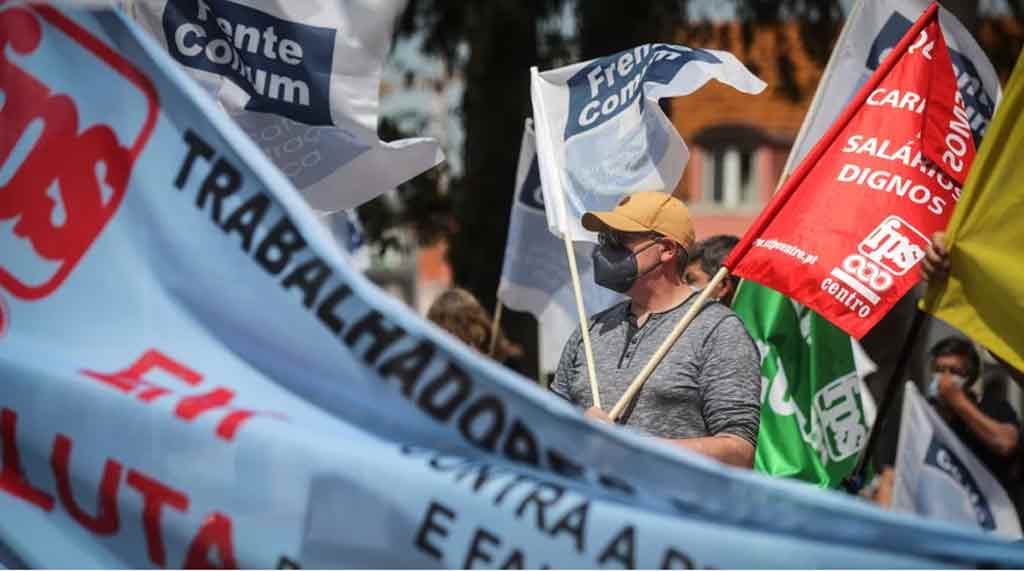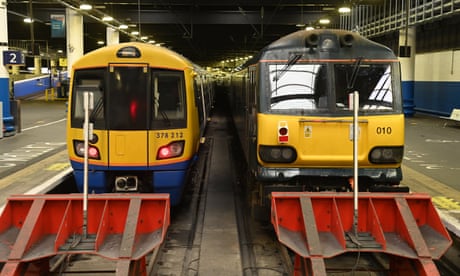LONDON, Nov 24 (NNN-PRENSA LATINA/AGENCIES) — The general secretary of the Rail, Maritime and Transport Union (RMT), Mick Lynch, blamed the British Conservative government for new strikes that rail workers will stage in December and January.
According to the labor leader, officials of the Ministry of Transport are preventing the companies operating the train service from making a better offer to the employees of the sector, who are demanding a wage increase in line with inflation, job security and better working conditions.
In statements to Sky News television on Wednesday, Lynch described the proposals made so far by Network Rail as unacceptable, and affirmed that Avanti West Coast and Great Western, two other operators, have not even made one in the last six months.
According to the unionist, the blame for the impasse in the negotiations falls on the top representatives of the Ministry of Transport.
The RMT announced Wednesday that in the days leading up to Christmas, and in early January, they will paralyze train service with four strikes of 48 hours each.
Those strikes, Lynch said, will be a clear message that we want a good deal on job security, wages and working conditions.
The UK transport secretary, Mark Harper, will meet the union leader Mick Lynch this week for the first time for urgent talks to try to call off rail strikes over the festive period.
Meanwhile, the work and pensions secretary, Mel Stride, told Sky News on Wednesday that legislation could be pushed forward “in due course” to ensure a minimum service for passengers. He condemned striking workers for putting festive family reunions at risk.
More than 40,000 members of the RMT working for Network Rail and 14 train operating companies will strike on Dec 13-14 and 16-17, causing disruption over six consecutive days in the run-up to Christmas. A further two strikes are planned for Jan 3-4 and 6-7.
The RMT also announced an overtime ban that would cover the Christmas period from Dec 18 until Jan 2, when services will already be affected in some areas by engineering works.
Train drivers in the Aslef union will also halt a number of services on Saturday.
“What we need is more talking from the unions with the employers and [fewer] announcements of strikes,” Stride said. “The consequence of this for families up and down the country, some of them quite serious incidentally, people trying to get to medical appointments for example, as well as the family reunions you have mentioned.
“It could be pretty profound. If you look at the timing of these strikes, they are designed to create maximum disruption across the Christmas period.”
LISBON: Public services were partially paralyzed in Portugal due to a strike in demand of salary and labor improvements called by several trade unions.

With support from 60-90 percent of health workers, according to estimates, teachers and civil servants, the strike is the first such an action organized this year, after the elections that gave the absolute majority in the Assembly of the Republic to the Socialist Party, led by Prime Minister Antonio Costa.
The protest was organized by the Common Front of Public Service Unions, attached to the General Confederation of Labor, Portugal’s largest trade union confederation.
Among the demands to the Government are improvements in professional careers, working conditions and raises to compensate for the loss of purchasing power aggravated by inflation.
The mobilization is taking place a week before the approval of the 2023 State Budget, which contemplates increases of up to 3.6 percent for public employees.
In an interview with the RTP channel, Sebastião Santana, coordinator of the Common Front, noted that further protests were not ruled out. — NNN-PRENSA LATINA/AGENCIES





